Publications
Below is a list of some of our recent publications organized under seven research umbrellas:
• EXPLAINABLE SENTIMENT ANALYSIS
• PERSONALIZED SENTIMENT ANALYSIS
• MULTIMODAL SENTIMENT ANALYSIS
• MULTILINGUAL SENTIMENT ANALYSIS
• MULTITASK SENTIMENT ANALYSIS
• FINANCIAL SENTIMENT ANALYSIS
• CONVERSATIONAL SENTIMENT ANALYSIS
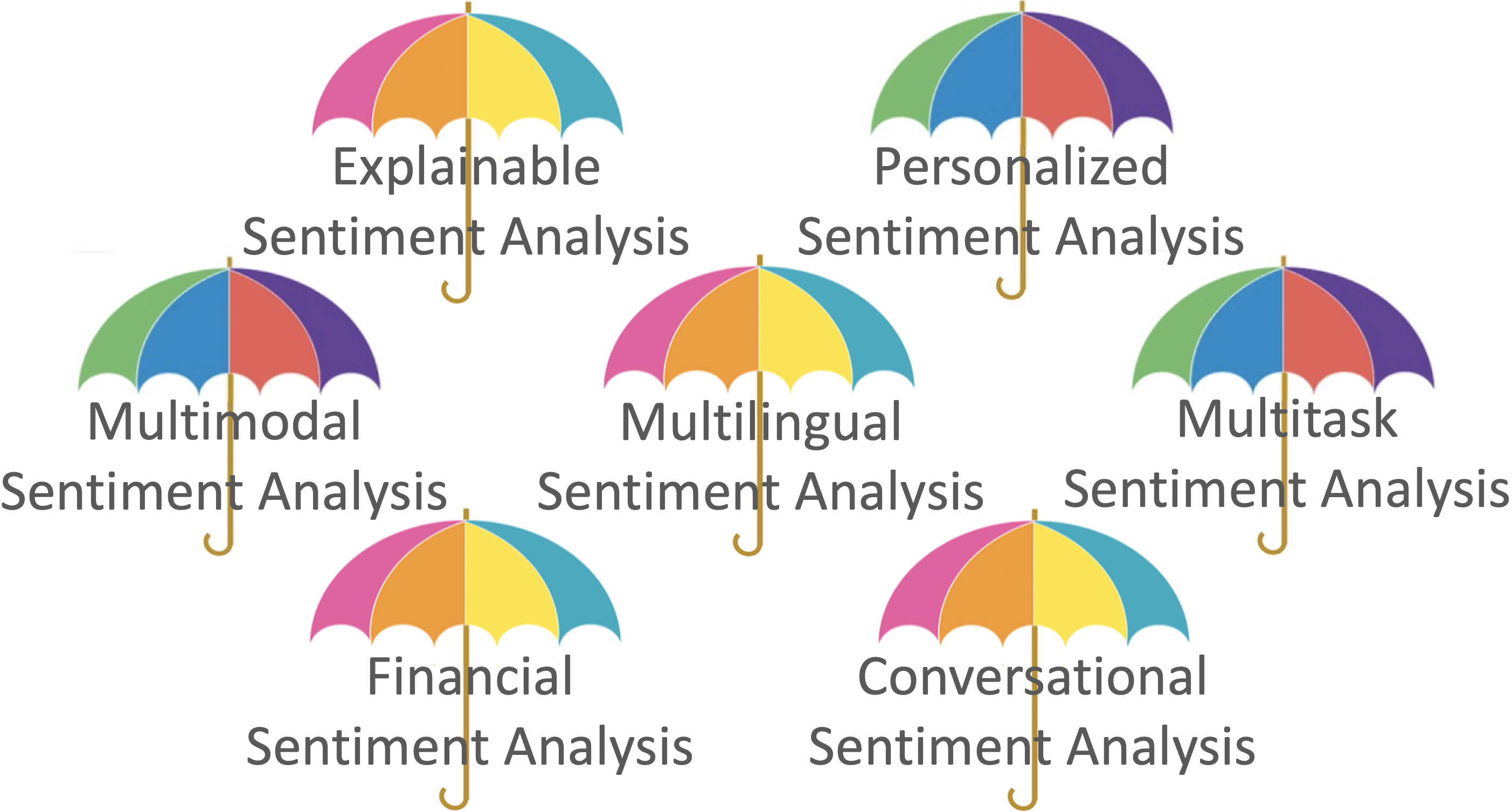
For the full list of our publications, please check Google Scholar
EXPLAINABLE SENTIMENT ANALYSIS
• E Cambria, X Zhang, R Mao, M Chen, K Kwok. SenticNet 8: Fusing Emotion AI and Commonsense AI for Interpretable, Trustworthy, and Explainable Affective Computing. In: Proceedings of the International Conference on Human-Computer Interaction (HCII), 197-216 (2024)
• X Zhang, R Mao, E Cambria. SenticVec: Toward Robust and Human-Centric Neurosymbolic Sentiment Analysis. Proceedings of ACL, 4851-4863 (2024)
• WJ Yeo, T Ferdinan, P Kazienko, R Satapathy, E Cambria. Self-training Large Language Models through Knowledge Detection. In: EMNLP, 15033-15045 (2024)
• P Kazienko and E Cambria. Towards Responsible Recommender Systems. IEEE Intelligent Systems 39(3), 5-12 (2024)
• E Cambria, L Malandri, F Mercorio, N Nobani, A Seveso. XAI meets LLMs: A Survey of the Relation between Explainable AI and Large Language Models. arXiv preprint arXiv:2407.15248 (2024)
• WJ Yeo, R Satapathy, SM Goh, E Cambria. How Interpretable are Reasoning Explanations from Prompting Large Language Models? NAACL, 2148-2164 (2024)
• A Diwali, K Saeedi, K Dashtipour, M Gogate, E Cambria, A Hussain. Sentiment Analysis Meets Explainable Artificial Intelligence: A Survey on Explainable Sentiment Analysis. IEEE Transactions on Affective Computing 15(3), 837-846 (2024)
• Mohammad Nadeem, Shahab Saquib Sohail, Erik Cambria, Björn Schuller, Amir Hussain. Negation Blindness in Large Language Models: Unveiling the ‘NO Syndrome’ in Image Generation. arXiv preprint arXiv:2407.17523 (2024)
• S Ranga, R Mao, E Cambria, A Chattopadhyay.. The Plagiarism Singularity Conjecture. Proceedings of NAACL (2025)
• E Cambria, L Malandri, F Mercorio, M Mezzanzanica, N Nobani. A Survey on XAI and Natural Language Explanations. Information Processing and Management 60, 103111 (2023)
• E Cambria, R Mao, M Chen, Z Wang, SB Ho. Seven Pillars for the Future of Artificial Intelligence. IEEE Intelligent Systems 38(6), 62-69 (2023)
• R Mao, Q Liu, K He, W Li, E Cambria. The Biases of Pre-Trained Language Models: An Empirical Study on Prompt-Based Sentiment Analysis and Emotion Detection. IEEE Transactions on Affective Computing 14(3), 1743-1753 (2023)
• M Anas, M Nadeem, S Sohail, E Cambria, A Hussain. Are Horses Always Strong and Donkeys Dumb? Animal Bias in Vision Language Models. IJCNN (2025)
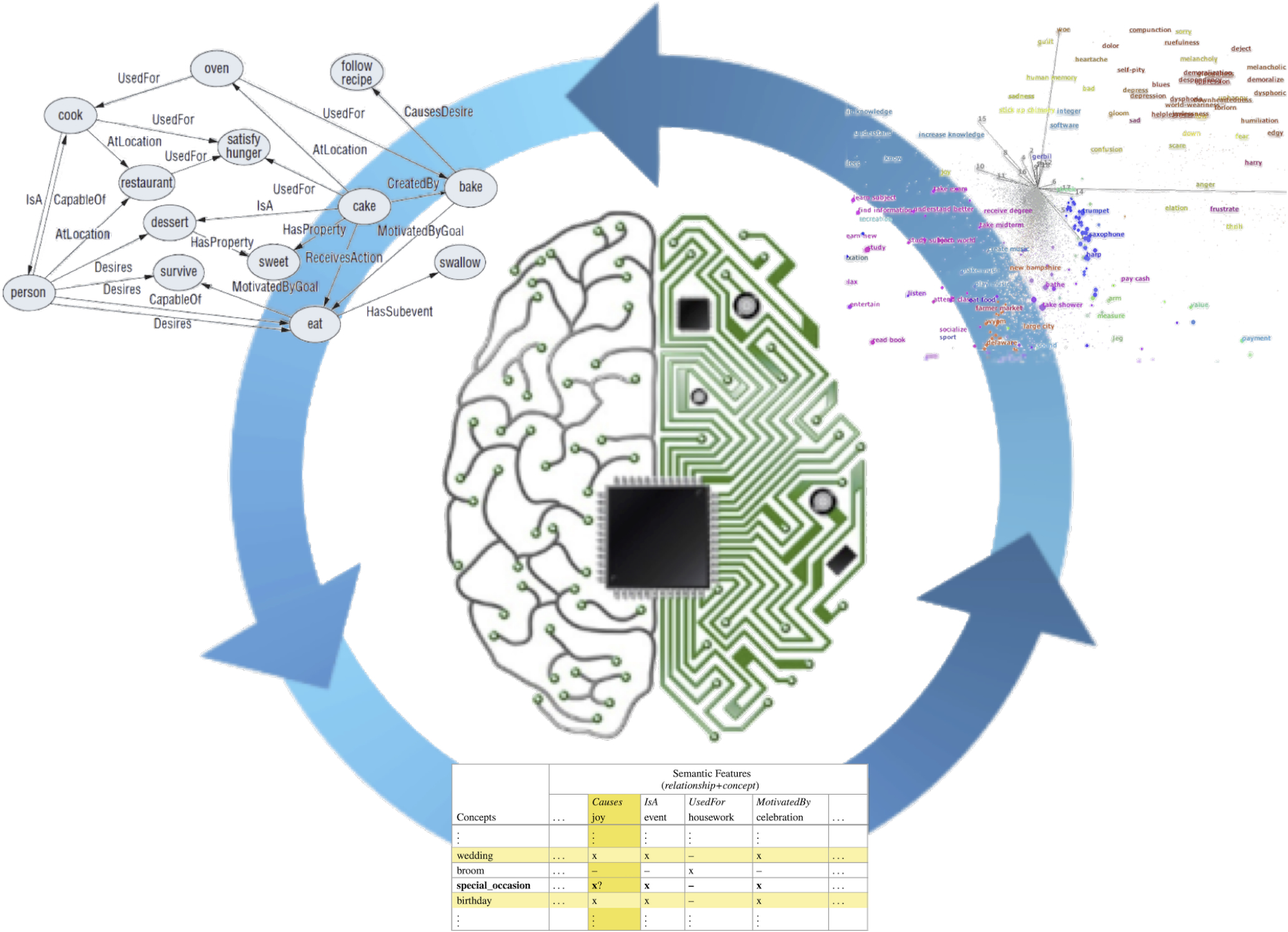
PERSONALIZED SENTIMENT ANALYSIS
• L Zhu, R Mao, E Cambria, BJ Jansen. Neurosymbolic AI for Personalized Sentiment Analysis. In: Proceedings of the International Conference on Human-Computer Interaction (HCII), 269-290 (2024)
• L Zhu, W Li, R Mao, E Cambria. HIPPL: Hierarchical Intent-Inferring Pointer Network with Pseudo Labeling for Consistent Persona-Driven Dialogue Generation. IEEE Computational Intelligence Magazine 19(4), 63-78 (2024)
• M Liu, J Liu, Y Dong, R Mao, E Cambria. Interest-Driven Community Detection on Attributed Heterogeneous Information Networks. Information Fusion 111, 102525 (2024)
• AK Jayaraman, G Ananthakrishnan, TE Trueman, E Cambria. Text-based Personality Prediction using XLNet. Advances in Computers 132, 49-65 (2024)
• L Zhu, W Li, R Mao, V Pandelea, E Cambria. PAED: Zero-Shot Persona Attribute Extraction in Dialogues. ACL, 9771-9787 (2023)
• J Salminen, S Jung, H Almerekhi, E Cambria, B Jansen. How Can Natural Language Processing and Generative AI Address Grand Challenges of Quantitative User Personas? International Conference on Human-Computer Interaction, 211-231 (2023)
• S Dhelim, N Aung, M Bouras, H Ning, E Cambria. A Survey on Personality-Aware Recommendation Systems. Artificial Intelligence Review 55, 2409-2454 (2022)
• Y Li, A Kazameini, Y Mehta, E Cambria. Multitask Learning for Emotion and Personality Traits Detection. Neurocomputing 493, 340-350 (2022)
• A Kumar, T Trueman, E Cambria. Gender-Based Multi-Aspect Sentiment Detection using Multilabel Learning. Information Sciences 606, 453-468 (2022)
• A Kazemeini, SS Roy, RE Mercer, E Cambria. Interpretable Representation Learning for Personality Detection. Proceedings of ICDM Workshops, 158-165 (2021)
• Y Mehta, N Majumder, A Gelbukh, E Cambria. Recent Trends in Deep Learning Based Personality Detection. Artificial Intelligence Review 53, 2313-2339 (2020)
• Y Mehta, S Fatehi, A Kazameini, C Stachl, E Cambria, S Eetemadi. Bottom-Up and Top-Down: Predicting Personality with Psycholinguistic and Language Model Features. In: ICDM, 1184-1189 (2020)

MULTIMODAL SENTIMENT ANALYSIS
• L Xiao, R Mao, X Zhang, L He, E Cambria. Vanessa 🦋: Visual Connotation and Aesthetic Attributes Understanding Network for Multimodal Aspect-based Sentiment Analysis. Proceedings of EMNLP (2024)
• L Xiao, R Mao, S Zhao, Q Lin, Y Jia, L He, E Cambria. Exploring Cognitive and Aesthetic Causality for Multimodal Aspect-Based Sentiment Analysis. IEEE Transactions on Affective Computing 16 (2025)
• M Luo, H Fei, B Li, S Wu, Q Liu, S Poria, E Cambria, ML Lee, W Hsu. PanoSent: A Panoptic Sextuple Extraction Benchmark for Multimodal Conversational Aspect-based Sentiment Analysis. Proceedings of ACM Multimedia, 7667-7676 (2024)
• H Zhang, Z Meng, M Luo, H Han, L Liao, E Cambria, H Fei. Towards Multimodal Empathetic Response Generation: A Rich Text-Speech-Vision Avatar-based Benchmark. Proceedings of WWW (2025)
• C Fan, J Lin, R Mao, E Cambria. Fusing Pairwise Modalities for Emotion Recognition in Conversations. Information Fusion 106, 102306 (2024)
• T Wang, R Mao, S Liu, E Cambria, D Ming. Explainable Multi-Frequency and Multi-Region Fusion Model for Affective Brain-Computer Interfaces. Information Fusion 118, 102971 (2025)
• D Huang, D Jiang, S Zhou, L Chen, J Lin, E Cambria. Emotional Lateralization-inspired Spatiotemporal Neural Networks for EEG-based Emotion Recognition. Information Fusion (2025)
• B Liang, L Gui, Y He, E Cambria, R Xu. Fusion and Discrimination: A Multimodal Graph Contrastive Learning Framework for Multimodal Sarcasm Detection. IEEE Transactions on Affective Computing 15(4), 1874-1888 (2024)
• A Gandhi, K Adhvaryu, S Poria, E Cambria, A Hussain. Multimodal Sentiment Analysis: A Systematic Review of History, Datasets, Multimodal Fusion Methods, Applications, Challenges and Future Directions. Information Fusion 91, 424-444 (2023)
• T Yue, R Mao, H Wang, Z Hu, E Cambria. KnowleNet: Knowledge Fusion Network for Multimodal Sarcasm Detection. Information Fusion 100, 101921 (2023)
• K Zhang, YQ Li, JG Wang, E Cambria, XL Li. Real-Time Video Emotion Recognition based on Reinforcement Learning and Domain Knowledge. IEEE Trans on Circuits and Systems for Video Technology 32(3), 1034-1047 (2022)
• L Stappen, A Baird, E Cambria, BW Schuller Sentiment Analysis and Topic Recognition in Video Transcriptions. IEEE Intelligent Systems 36(2), 88-95 (2021)
• I Chaturvedi, R Satapathy, S Cavallari, E Cambria. Fuzzy Commonsense Reasoning for Multimodal Sentiment Analysis. Pattern Recognition Letters 125, 264-270 (2019)
• E Cambria, D Hazarika, S Poria, A Hussain, RBV Subramaanyam. Benchmarking Multimodal Sentiment Analysis. In: CICLing, 166-179 (2017)
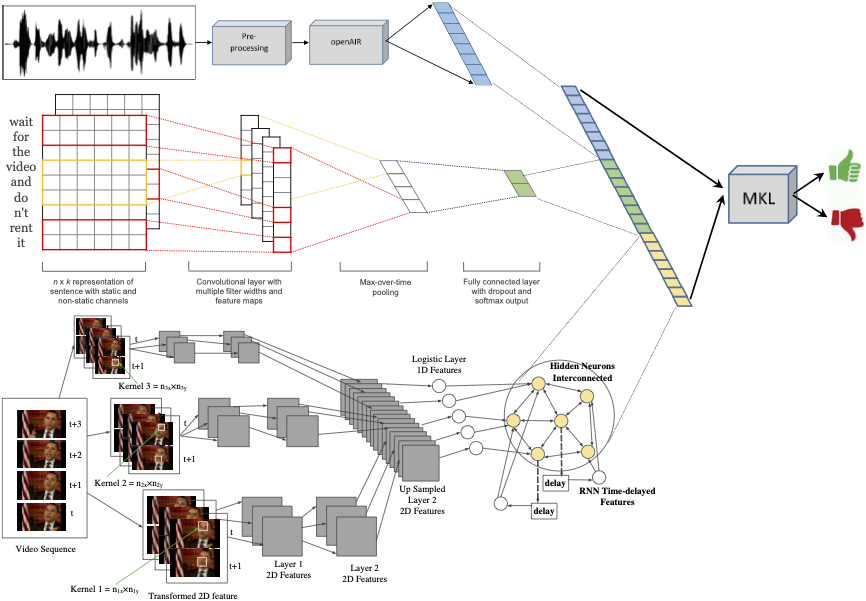
MULTILINGUAL SENTIMENT ANALYSIS
• X Zhang, R Mao, E Cambria. Multilingual Emotion Recognition: Discovering the Variations of Lexical Semantics between Languages. In: IJCNN (2024)
• R Ng et al. SEA-LION: Southeast Asian Languages in One Network. In: ACL (2025)
• T Yue, X Shi, R Mao, Z Hu, E Cambria. SarcNet: A Multilingual Multimodal Sarcasm Detection Dataset. In: LREC-COLING, 14325-14335 (2024)
• Z Wang, X Zhang, J Cui, SB Ho, E Cambria. A Review of Chinese Sentiment Analysis: Subjects, Methods, and Trends. Artificial Intelligence Review 58,75 (2025)
• M Bounhas, B Elayeb, A Chouigui, A Hussain, E Cambria. Arabic Text Classification based on Analogical Proportions. Expert Systems e13609 (2024)
• P Le-Hong, E Cambria. A Semantics-Aware Approach for Multilingual Natural Language Inference. Language Resources and Evaluation 57, 611-639 (2023)
• P Le-Hong, E Cambria. Integrating Graph Embedding and Neural Models for Improving Transition-based Dependency Parsing. Neural Computing and Applications (2023)
• ALS Mohammad, MM Hammad, A Sa’ad, ALT Saja, E Cambria. Gated Recurrent Unit with Multilingual Universal Sentence Encoder for Arabic Aspect-Based Sentiment Analysis. Knowledge-Based Systems 261, 107540 (2023)
• H Peng, Y Ma, S Poria, Yang Li, E Cambria. Phonetic-Enriched Text Representation for Chinese Sentiment Analysis with Reinforcement Learning. Information Fusion 70, 88-99 (2021)
• D Vilares, H Peng, R Satapathy, E Cambria. BabelSenticNet: A Commonsense Reasoning Framework for Multilingual Sentiment Analysis. In: IEEE SSCI, 1292-1298 (2018)
• H Peng, Y Ma, Y Li, E Cambria. Learning Multi-grained Aspect Target Sequence for Chinese Sentiment Analysis. Knowledge-Based Systems 148, 167-176 (2018)
• SL Lo, E Cambria, R Chiong, D Cornforth. Multilingual Sentiment Analysis: From Formal to Informal and Scarce Resource Languages. Artificial Intelligence Review 48(4), 499-527 (2017)
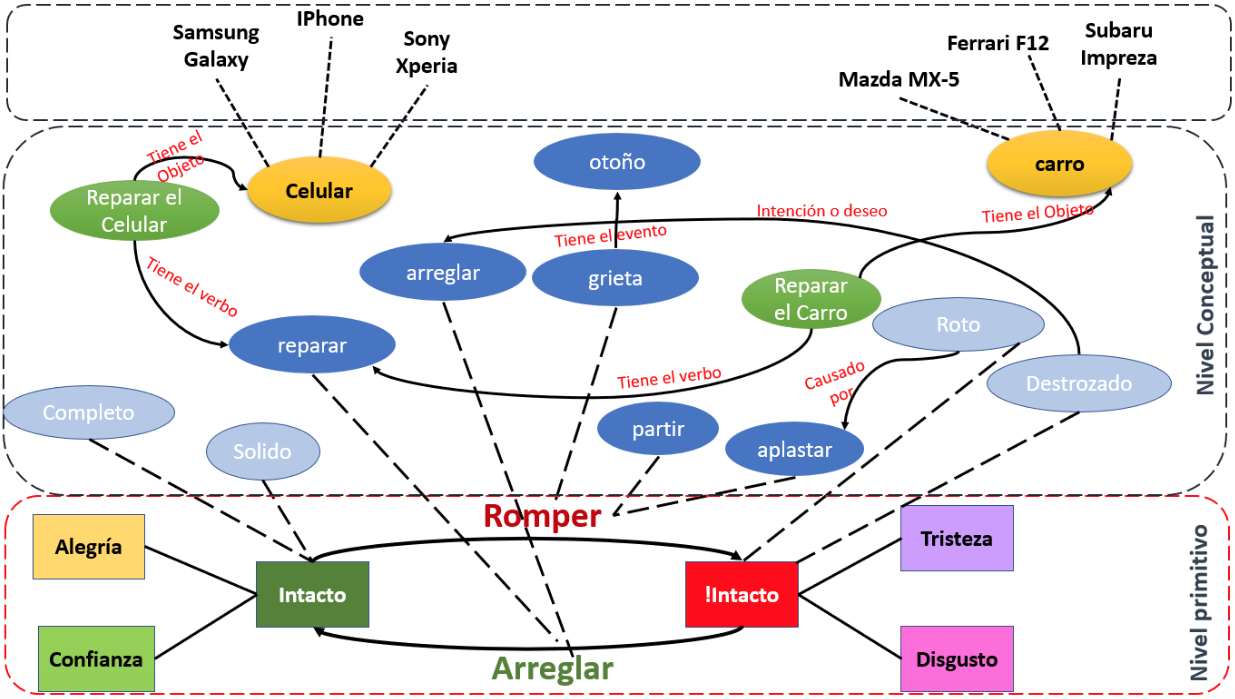
MULTITASK SENTIMENT ANALYSIS
• X Zhang, R Mao, E Cambria. Granular Syntax Processing with Multi-task and Curriculum Learning. Cognitive Computation 16, 3020–3034 (2024)
• K He, R Mao, Y Huang, T Gong, C Li, E Cambria. Template-Free Prompting for Few-Shot Named Entity Recognition via Semantic-Enhanced Contrastive Learning. IEEE Transactions on Neural Networks and Learning Systems (2024)
• Z Huang, R Mao, X Wu, K He, X Zhang, E Cambria. Fundamental Algorithms for Retrieval Augmented Generation: A Survey. IEEE Transactions on Knowledge and Data Engineering (2025)
• Z Zhang, SYM Lee, J Wu, D Zhang, S Li, E Cambria, G Zhou. Cross-domain NER with Generated Task-Oriented Knowledge: An Empirical Study from Information Density Perspective. EMNLP (2024)
• M Firdaus, A Ekbal, E Cambria. Multitask Learning for Multilingual Intent Detection and Slot Filling in Dialogue Systems. Information Fusion 91, 299-315 (2023)
• X Zhang, R Mao, K He, E Cambria. Neurosymbolic Sentiment Analysis with Dynamic Word Sense Disambiguation. In: EMNLP, 8772-8783 (2023)
• K He, R Mao, T Gong, C Li, E Cambria. Meta-based Self-training and Re-weighting for Aspect-based Sentiment Analysis. IEEE Transactions on Affective Computing 14(3), 1731-1742 (2023)
• R Liu, G Chen, R Mao, E Cambria. A Multi-task Learning Model for Gold-two-mention Co-reference Resolution. IJCNN (2023)
• R Satapathy, E Cambria. Polarity and Subjectivity Detection with Multitask Learning and BERT Embedding. Future Internet 14(7), 191 (2022)
• M Ge, R Mao, E Cambria. Explainable Metaphor Identification Inspired by Conceptual Metaphor Theory. In: AAAI, 10681-10689 (2022)
• D Jiang, R Wei, H Liu, J Wen, G Tu, L Zheng, E Cambria. A Multitask Learning Framework for Multimodal Sentiment Analysis. In: ICDM Workshops, 151-157 (2021)
• N Majumder, S Poria, H Peng, N Chhaya, E Cambria, A Gelbukh. Sentiment and Sarcasm Classification with Multitask Learning. IEEE Intelligent Systems 34(3), 38-43 (2019)
• A Valdivia, MV Luzón, E Cambria, F Herrera. Consensus Vote Models for Detecting and Filtering Neutrality in Sentiment Analysis. Information Fusion 44, 126-135 (2018)
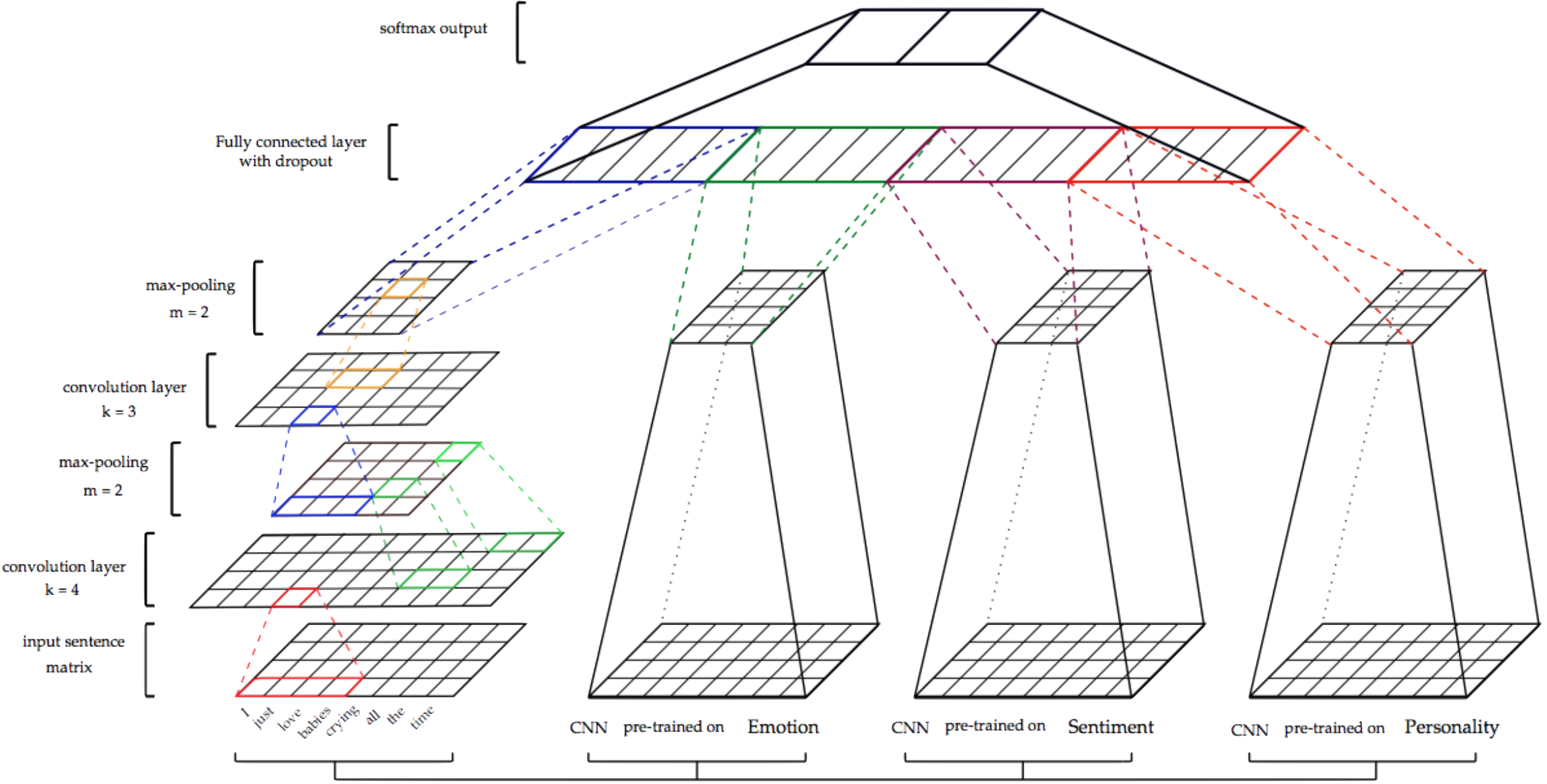
FINANCIAL SENTIMENT ANALYSIS
• K Du, Y Zhao, R Mao, F Xing, E Cambria. Natural Language Processing in Finance: A Survey. Information Fusion 115, 102755 (2025)
• Y Ma, R Mao, P Wu, E Cambria. Public Opinion Crisis Management via Social Media Mining. IEEE Transactions on Affective Computing 16 (2025)
• R Manro, R Mao, L Dahiya, Yu Ma, E Cambria. A Cognitive Analysis of CEO Speeches and Their Effects on Stock Markets. Proceedings of ICFT, 20–31 (2024)
• RQW Heng, E Vittori, K Ong, R Mao, E Cambria, G Mengaldo. Leveraging LLMs for Top-Down Sector Allocation In Automated Trading. Proceedings of ICLR Workshops (2025)
• K Du, F Xing, R Mao, E Cambria. Financial Sentiment Analysis: Techniques and Applications. ACM Computing Surveys 56(9), 220 (2024)
• K Du, F Xing, R Mao, E Cambria. An Evaluation of Reasoning Capabilities of Large Language Models in Financial Sentiment Analysis. In: IEEE CAI, 189-194 (2024)
• K Ong, R Mao, R Satapathy, E Cambria, J Sulaeman, G Mengaldo. Explainable Natural Language Processing for Corporate Sustainability Analysis. Information Fusion 114 (2025)
• K Du, F Xing, R Mao, E Cambria. Explainable Stock Price Movement Prediction using Contrastive Learning. In: CIKM, 529-537 (2024)
• WJ Yeo, W Van Der Heever, R Mao, E Cambria, R Satapathy, G Mengaldo. A Comprehensive Review on Financial Explainable AI. Artificial Intelligence Review 58, 189 (2025)
• Y Ma, R Mao, Q Lin, P Wu, E Cambria. Quantitative Stock Portfolio Optimization by Multi-task Learning Risk and Return. Information Fusion 104, 102165 (2024)
• K Du, R Mao, F Xing, E Cambria. A Dynamic Dual-Graph Neural Network for Stock Price Movement Prediction. In: IJCNN (2024)
• R Manro, R Mao, L Dahiya, Y Ma, E Cambria. A Cognitive Analysis of CEO Speeches and Their Effects on Stock Markets. In: ICFT (2024)
• R Mao, K Du, Y Ma, L Zhu, E Cambria. Discovering the Cognition behind Language: Financial Metaphor Analysis with MetaPro. In: ICDM, 1211-1216 (2023)
• K Ong, W van der Heever, R Satapathy, G Mengaldo, E Cambria. FinXABSA: Explainable Finance through Aspect-Based Sentiment Analysis. In: ICDM Workshops, 773-782 (2023)
• K Du, F Xing, R Mao, E Cambria. FinSenticNet: A Concept-Level Lexicon for Financial Sentiment Analysis. In: IEEE SSCI, 109-114 (2023)
• K Du, F Xing, E Cambria. Incorporating Multiple Knowledge Sources for Targeted Aspect-based Financial Sentiment Analysis. ACM Transactions on Management Information Systems 14(3), 23 (2023)
• Z Wang, Z Hu, F Li, SB Ho, E Cambria. Learning-Based Stock Trending Prediction by Incorporating Technical Indicators and Social Media Sentiment. Cognitive Computation 15(3), 1092-1102 (2023)
• Y Ma, R Mao, Q Lin, P Wu, E Cambria. Multi-source Aggregated Classification for Stock Price Movement Prediction. Information Fusion 91, 515-528 (2023)
• F Xing, L Malandri, Y Zhang, E Cambria. Financial Sentiment Analysis: An Investigation into Common Mistakes and Silver Bullets. In: COLING, 978-987 (2020)
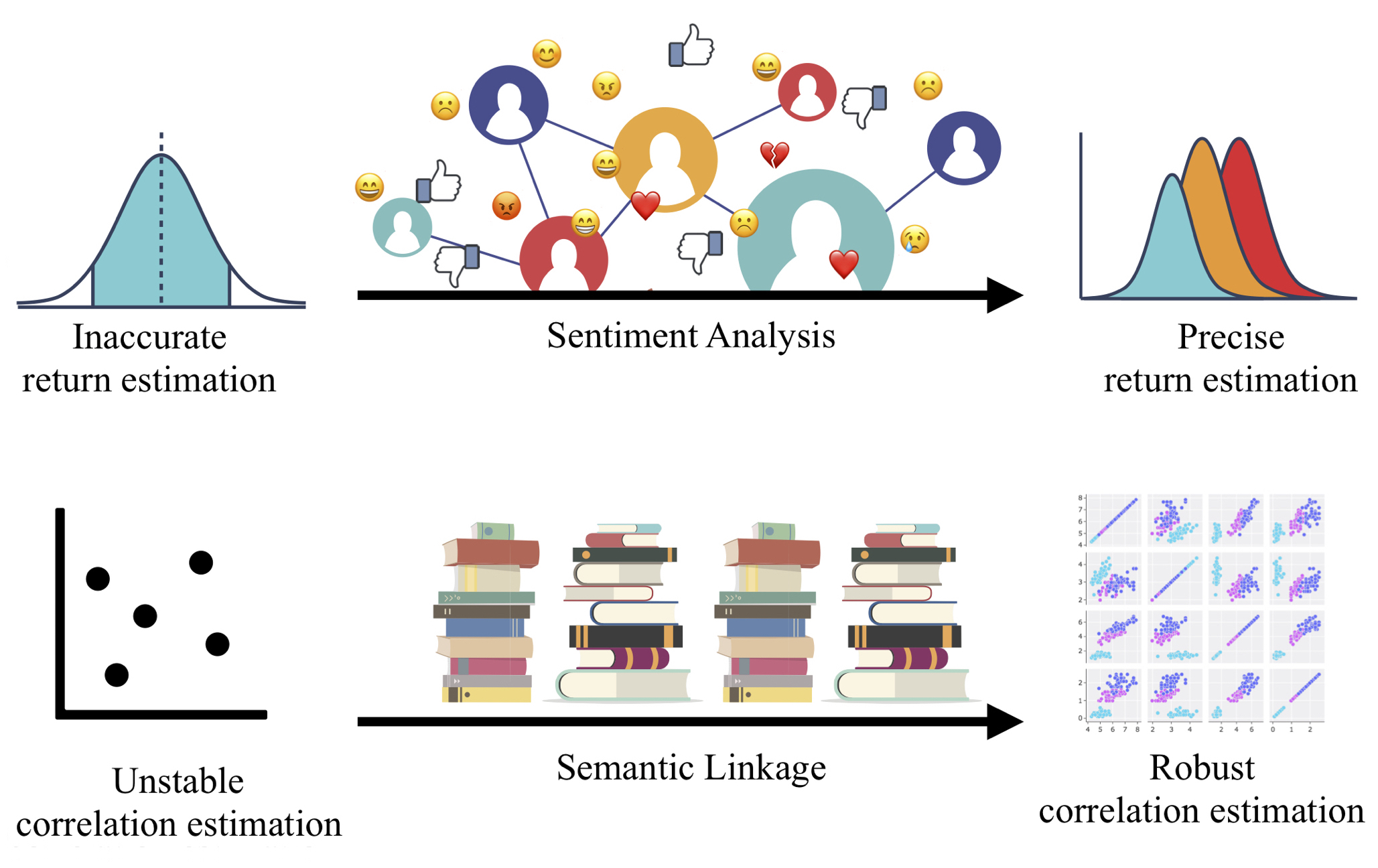
CONVERSATIONAL SENTIMENT ANALYSIS
• D Jiang, H Liu, G Tu, R Wei, E Cambria. Self-supervised Utterance Order Prediction for Emotion Recognition in Conversations. Neurocomputing 577, 127370 (2024)
• D Jiang, W Yu, C Li, X Hu, W Zhu, E Cambria. Dialogue Emotion Model based on Local-Global Context Encoder and Commonsense Knowledge Fusion Attention. International Journal of Machine Learning and Cybernetics 15, 2811-2825 (2024)
• D Varshney, A Ekbal, E Cambria. Emotion-and-Knowledge Grounded Response Generation in an Open-domain Dialogue Setting. Knowledge-Based Systems 284, 111173 (2024)
• H Liu, R Wei, G Tu, J Lin, D Jiang, E Cambria. Knowing What and Why: Causal Emotion Entailment for Emotion Recognition in Conversations. Expert Systems With Applications 274, 126924 (2025)
• M Amin, E Cambria, B Schuller. Will Affective Computing Emerge from Foundation Models and General Artificial Intelligence? A First Evaluation of ChatGPT. IEEE Intelligent Systems 38(2), 15-23 (2023)
• W Li, L Zhu, W Shao, Z Yang, E Cambria. Task-Aware Self-Supervised Framework for Dialogue Discourse Parsing. In: EMNLP, 14162-14173 (2023)
• W Li, L Zhu, R Mao, E Cambria. SKIER: A Symbolic Knowledge Integrated Model for Conversational Emotion Recognition. In: AAAI, 13121-13129 (2023)
• W Li, Y Li, V Pandelea, M Ge, L Zhu, E Cambria. ECPEC: Emotion-Cause Pair Extraction in Conversations. IEEE Transactions on Affective Computing 14(3), 1754-1765 (2023)
• D Jiang, R Wei, J Wen, G Tu, E Cambria. AutoML-Emo: Automatic Knowledge Selection using Congruent Effect for Emotion Identification in Conversations. IEEE Transactions on Affective Computing 14(3), 1845-1856 (2023)
• J Wen, D Jiang, G Tu, C Liu, E Cambria. Dynamic Interactive Multiview Memory Network for Emotion Recognition in Conversation. Information Fusion 91, 123-133 (2023)
• W Li, W Shao, SX Ji, E Cambria. BiERU: Bidirectional Emotional Recurrent Unit for Conversational Sentiment Analysis. Neurocomputing 467, 73-82 (2022)
• N Mishra, M Ramanathan, R Satapathy, E Cambria, N Thalmann. Can a Humanoid Robot be part of the Organizational Workforce? A User Study Leveraging Sentiment Analysis. In: Ro-Man (2019)






